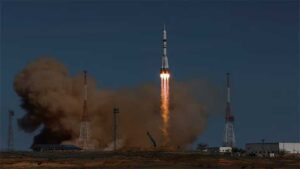
In a stunning display of ongoing scientific diplomacy, a Russian Soyuz rocket safely delivered a US astronaut and two Russian cosmonauts to the International Space Station (ISS) this week. The mission is a welcome reminder that even with tensions between Washington and Moscow, the cooperative spirit of space exploration is still alive.
The Soyuz MS-25 rocket blasted off from Kazakhstan’s Baikonur Cosmodrome and docked successfully at the ISS, with NASA astronaut Tracy C. Dyson onboard, along with Russian cosmonauts Oleg Novitsky and Marina Vasilevskaya.
What is significant about this mission is the message that it conveys to the world that collaboration in space persists, even though geopolitical conflicts linger on Earth. The collaboration between NASA and Roscosmos, Russia’s government space agency, underscores the priority of science and innovation over war.
Russian President Vladimir Putin’s representative, Yuri Ushakov, complimented the long US-Russia partnership in space, citing it as one of the few places where dialogue and understanding are not merely possible but are actively moving forward. He underlined that space is a neutral sphere where the main goal is the development of humankind.
NASA similarly emphasized the necessity of cooperative missions to continue to run and maintain the ISS. Such cooperative undertakings are essential to space science, long-term missions, and the way forward for international cooperation in exploring deep space.
This new mission offers a new source of hope that scientific cooperation can be above political rivalries and reinvigorate a sense of shared purpose for expanding frontiers of human exploration.
As space continues to become a dynamic and strategic domain, the world watches closely how such partnerships evolve offering a glimpse of unity in an increasingly divided global landscape.
